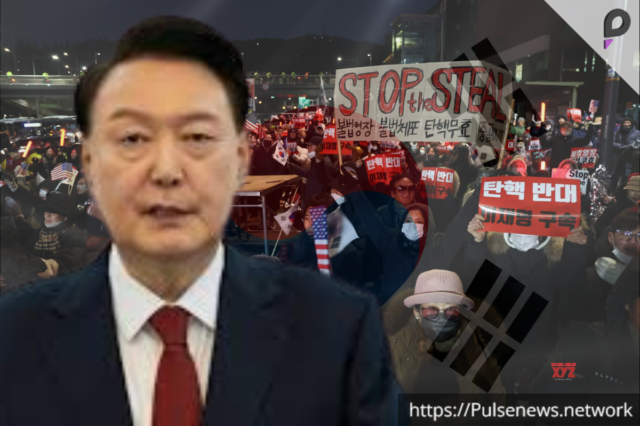Seoul: In a dramatic turn of events, an attempt to arrest South Korea’s suspended President Yoon Suk Yeol was called off after a six-hour standoff involving hundreds of security personnel and pro-Yoon supporters. The operation, led by police and the Corruption Investigation Office (CIO), aimed to execute an arrest warrant issued after Yoon repeatedly ignored summonses for questioning over allegations of abuse of power and inciting insurrection.
A High-Stakes Standoff
The arrest attempt began early Friday morning with 150 officers deployed to Yoon’s residence in central Seoul. However, they were met with overwhelming resistance. Pro-Yoon supporters formed a human shield outside the property, while presidential security officers and a military unit responsible for protecting the capital barred access inside.
The standoff escalated when Yoon’s security team reportedly clashed with investigators, leaving the CIO with no option but to withdraw. The CIO cited safety concerns for their decision, acknowledging the logistical and physical challenges posed by the confrontation.
Yoon’s Legal and Political Battle
Yoon, a former chief prosecutor, has leveraged his knowledge of legal loopholes to resist the investigation. His defiance has been criticized by opposition leaders, who accuse him of reneging on his promise to take responsibility for his failed martial law attempt in December.
Despite the setback, investigators have until January 6 to arrest Yoon under the current warrant. They may seek an extension or apply for a new warrant to pursue him further. Meanwhile, Yoon’s legal team has argued that the CIO lacks the authority to detain him, signaling potential legal battles ahead.
Political Fallout and Public Reaction
The failed arrest attempt has deepened South Korea’s political turmoil, which began with Yoon’s controversial martial law declaration on December 3. The opposition-dominated parliament impeached Yoon on December 14, followed by the impeachment of acting President Han Duck-soo, plunging the nation further into crisis.
Yoon’s supporters celebrated the suspension of the arrest, echoing slogans reminiscent of U.S. political protests. Meanwhile, the CIO faces mounting criticism for its inability to bring Yoon to justice, raising questions about its authority and effectiveness.
What’s Next?
South Korea’s political landscape remains fraught with uncertainty. The CIO is under pressure to act decisively, with opposition leaders urging them to reattempt Yoon’s arrest. At the same time, prosecutors have charged military leaders involved in the martial law declaration, signaling a broader crackdown on those connected to Yoon’s controversial decisions.
As the warrant’s expiration looms, all eyes are on South Korea’s legal and political institutions to determine the next steps in this high-profile case. This ongoing saga underscores the challenges of navigating accountability and governance during times of political upheaval.











